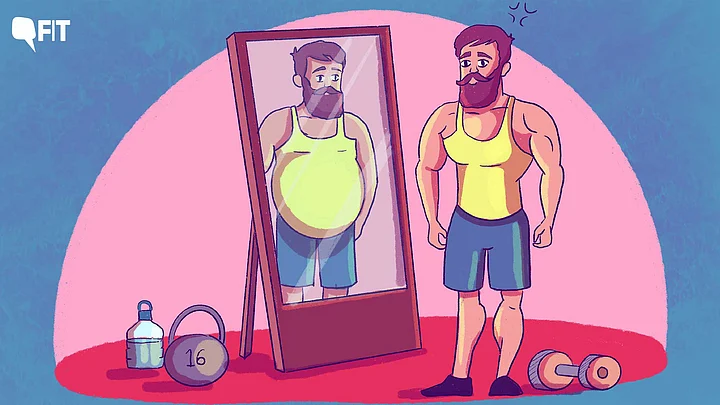Bigorexia is a mental disorder that's classified by the thought or delusion that one's muscles are never big enough, or that one is never lean enough, or muscular enough.
The clinical term is muscle dysmorphia, but it's also commonly called megarexia, bigorexia, or reverse anorexia.
Bigorexia is a subtype of body dysmorphia or body dysmorphic disorder which makes an individual constantly look at themselves as "ugly", flawed, or physically unappealing.
The Diagnostic and Statistical Manual (DSM-5) defines bigorexia as a person's preoccupation with the idea that their body is too small or insufficiently muscular.
Causes of Bigorexia
Bigorexia, like body dysmorphia or any other disorder that results in self-image issues, can be triggered by a multitude of causes. Some of the more common causes of bigorexia include:
Childhood trauma, teasing, belittling, or berating tied to one's physical appearance.
Parental or societal pressure to look a certain way.
Having family who suffer from bigorexia, body dysmorphia, or obsessive-compulsive disorder.
Personality traits like perfectionism.
Disorders like anxiety, depression, or obsessive-compulsive disorder.
In short, if you've been teased or belittled for the way you looked when you were a child or an adolescent, it can lead to a body image disorder like body dysmorphia or muscle dysmorphia.
The spread of "perfect" bodies and "perfect" looks on social media platforms like Instagram, Twitter, and Snapchat can lead to constant comparisons and an obsession with looking more muscular, or looking leaner.
Symptoms of Bigorexia
Symptoms or signs of bigorexia include some of the following:
Excessive working out, even at the cost of other factors like sleep, diet, and relationships.
Medication and steroid use for physical fitness or muscle gain.
Suffering from panic or anxiety when you miss a day at the gym, or eat something "unhealthy".
Experiencing self-loathing, disgust, or feelings of revulsion when you look in the mirror.
Constant feelings of inadequacy and thoughts of being ugly in your body, despite real-world proof to the contrary.
Being on an endless fitness journey where no amount of working out or eating healthy feels adequate.
Do You Have Bigorexia?
Being concerned about how you look and/or working towards a health goal, even an ambitious one, doesn't mean you suffer from bigorexia.
However, if you're constantly belittling yourself for how you look, or taking fitness steps to the point where they derail your daily life and functioning, affecting other aspects of your life, you may be suffering from bigorexia or body dysmorphia.
Remember, a problem becomes a disorder when it starts to disrupt your daily life and functioning.
Unchecked bigorexia can lead to steroid abuse, excessive consumption of laxatives to "stay skinny", excess self-medication to become more muscular, or starving oneself to lose weight.
While your physical health and fitness are important, focusing on them to an unhealthy extent, and constantly comparing yourself to the "perfect bodies" you see on social media can lead to bigorexia, anxiety, and depression.
Take care of your physical health, but not at the cost of your mental health, relationships, and life.

